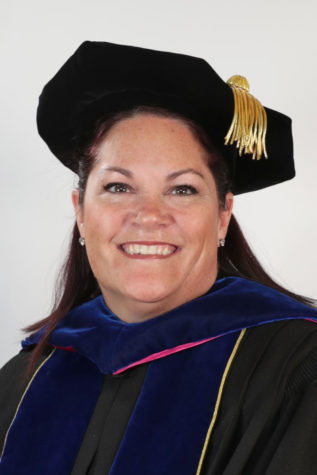MU says goodbye to Russian Fulbright
April 30, 2019
As Mercyhurst says goodbye to this year’s Russian Fulbright scholar, Lidiia Novichkova took time to tell the Merciad about her native country, Siberia, which she will return to this year.
Over the course of this unforgettable year at Mercyhurst University, I was frequently asked about my home town, and, as the region suggests, about the climate. It is always my joy and pleasure to bring up some interesting facts about Siberia.
Historically, the Russians settled in the European part of the country. It is there that our ancient cities of Vladimir, Moscow, Novgorod and Yaroslavl are located. Siberia, although being inhabited by several nomadic peoples, remained a huge and scarcely populated living territory.
My city, Tyumen, was founded in 1586 on the bank of the Tura river. It became the first Russian town in Siberia. Since then, there has been gradual development of the region.
The necessity to travel over large distances without proper roads and shelters was one of the challenges the first settlers had to face. Yet these difficulties brought people together, and from that time onwards, the Siberians have been a close community of families supporting one another.
Nowadays, Siberian cities, including Novosibirsk, Tyumen and Tobolsk, are the gems of the country, and are important economic, cultural and scientific centers with universities and hospitals of federal status.
Siberia is the birthplace of Dmitri Mendeleev, the inventor of the periodic table of elements, and Pyotr Ershov, a famous Russian author. Traveling through these modern cities with cutting-edge facilities, one could hardly picture vast unexplored lands that used to dominate the landscape.
With gas and oil industries prevailing in the region, Tyumen is now referred to as the gas and oil capital.
But what about the cold? With the economic landscape having changed profoundly, one would hope winters got modernized too. They remain unchanged, and every year we get a few days in January with – 20 F.
However, even in Siberia winters have a way of finishing.
In fact, we have four clear-cut seasons, with summer temperatures rising up to 80 F.
The Russians have been always cultivating land, and the Siberians take advantage of the rich soils of the region. Summer vegetable gardens with apple, pear and cherry trees gather whole families together. Neighbors share wisdom of gardening and exchange canning recipes. Sun-lit forests would fill with children’s voices excited at the sight of mushrooms and berries.
Gardening skills will always be praised in the winter time. A jar of homemade strawberry jam can be enjoyed at tea time or presented as a Christmas gift. But most importantly, one little jar of jam will reflect the new chapter of Siberian history brought into life by the effort of the community.
On behalf of Siberian people, I would invite everyone to come to Siberia and enjoy its friendliness, hospitality, homemade food and the unique mixture of ancient and urban architecture.







